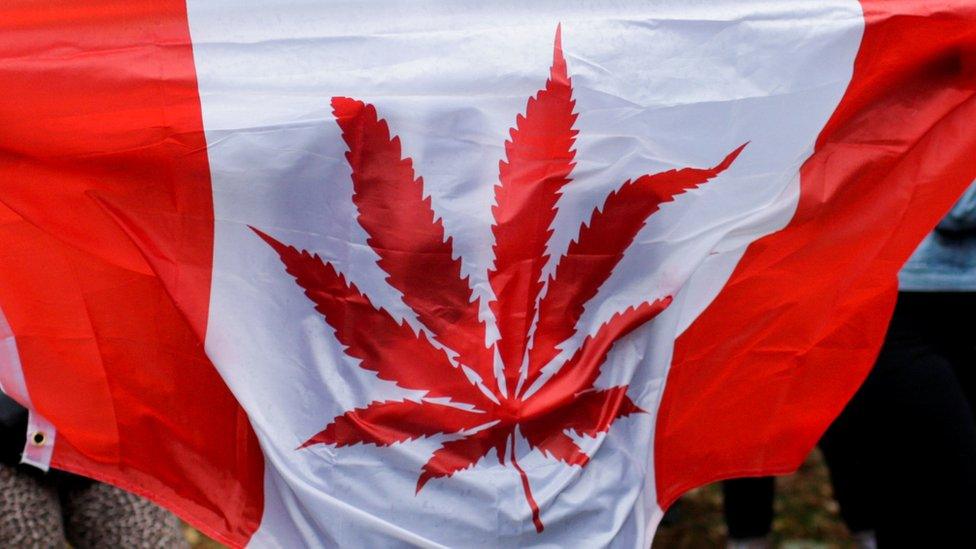Cannabis in Canada: Pardoning people for possession isn't enough
- Published

Canadians will get pardons if they were convicted of possessing marijuana before it was legalised.
That means their criminal record for cannabis possession is kept separate from other criminal records - but it doesn't erase the crime.
It could still affect people in situations like job applications, travelling abroad and getting houses - and the person who wants a pardon has to apply and pay for it.
Some politicians argue that pardoning doesn't go far enough and something called expungement - when all government records of the crime are erased - should happen instead.
"We now need to go back and be able to remove the stain that is on the record," the New Democratic Party's Guy Caron told Radio 1 Newsbeat.
His party holds about 12% of seats in the Canadian parliament and supported the legalisation of weed.
Pardoning would only apply to people who were convicted for carrying 30g or under of marijuana, and not for other crimes such as supplying or driving under the influence.
More than have a criminal record because of Cannabis possession.
The governing Liberal party - whose leader is Prime Minister Justin Trudeau - says crimes are only expunged for laws which are unconstitutional.
Expungement has been used for LGBT people who were convicted when gay sex was illegal in Canada, for example.
Legal cannabis in Canada: Should pot convicts get amnesty?
Karen McCrimmon is one of the Canadian government's MPs.
She told us that the answer is to fast-track the pardoning process so it takes "months rather than years", as well as making it free.
Guy Caron says other issues - like marginalised communities being unfairly targeted when cannabis was illegal - mean pardoning is not good enough.
Aboriginal (native) Canadians and ethnic minorities were convicted more despite "a consumption that was broadly similar to the rest of the population", he says.
And pardoning doesn't go far enough to right those wrongs.
Karen McCrimmon agrees that certain groups were targeted - but says that pardoning "will make a big difference to a lot of people who were afraid to put themselves out there with a concern that this was hanging over them".
"It is going to be a challenge, when you have neighbours who don't have the same views as you do, but we're trying to advise Canadians just to be thoughtful about it."
She adds: "We have to make sure that this is not going to be a political football that's going to go one way or another with whoever's in government.
"We need to make sure that this sticks over the long term."
Follow Newsbeat on , and .
Listen to Newsbeat live at 12:45 and 17:45 every weekday on ģÉČËŋėĘÖ Radio 1 and 1Xtra - if you miss us you can listen back here.
- Published17 October 2018
- Published18 October 2018